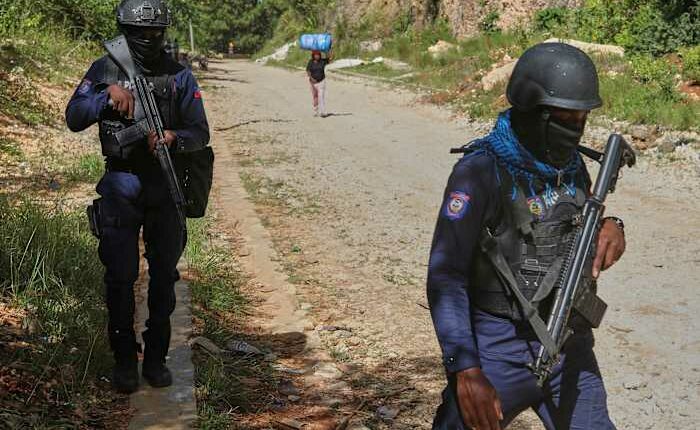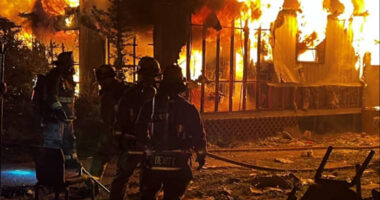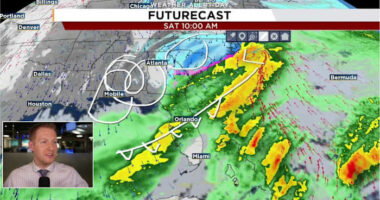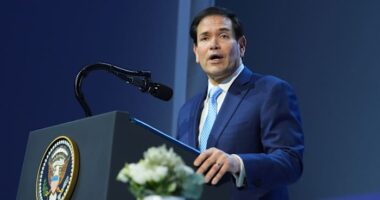Share this @internewscast.com
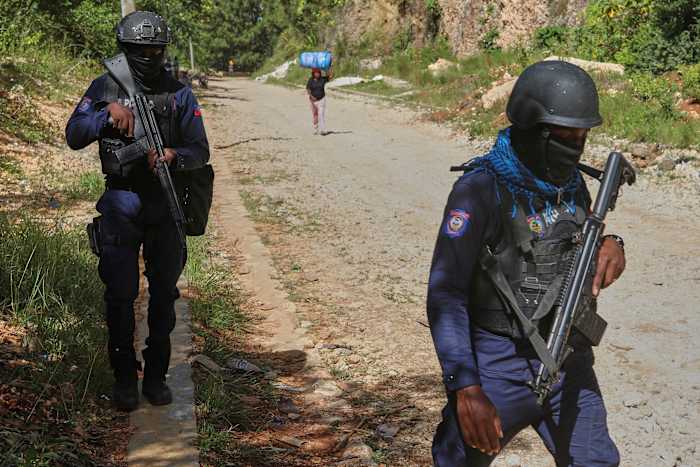
TANZANIA – On Thursday, the United States revealed its plan to seek U.N. approval to establish a new “Gang Suppression Force” addressed at combating the rising violence in Haiti, where armed factions are extending their ruthless operations from the capital to rural areas.
U.S. Acting Ambassador Dorothy Shea made this announcement during a U.N. Security Council session, yet it remains uncertain how this force will differ from the Multinational Security Support initiative led by Kenya, which is currently engaged in aiding local police in the conflict-stricken Caribbean nation to tackle gang-related violence.
Shea expressed gratitude to Kenya for responding to Haiti’s urgent appeal by spearheading a multinational force for over a year, noting that without Kenya’s leadership, gangs might have felt even bolder in their goals and violent acts against Haitian civilians.
According to Shea, the U.S. along with Panama, plans to introduce a draft resolution to the Security Council, aiming to create the Gang Suppression Force and establish a U.N. Support Office to provide logistical aid to this initiative.
Back in February, U.N. Secretary-General Antonio Guterres suggested inaugurating an office equipped to supply drones, fuel, and various non-lethal resources, along with ground and air transport to support the Kenya-led mission.
Shea did not clarify whether the U.S. would offer any military or police backing to the emergent Gang Suppression Force, nor did she specify if Kenya and the other participating nations – including the Bahamas, El Salvador, Belize, Guatemala, and Jamaica – would continue their involvement.
One council diplomat said it had been informed that the Kenya-led force would be renamed and transformed into the Gang Suppression Force with a significant increase in size and U.N. logistical support. The diplomat was not authorized to speak publicly because discussions were private.
The first Kenyans arrived in Haiti in June 2024 and the force was supposed to have 2,500 troops but its current strength is below 1,000.
Shea urged Security Council members to support the “new path towards peace and security.” And she urged the international community “to come to the table and join the United States, Panama and others who have demonstrated their commitment to Haiti’s security, in meaningful burden sharing to help promote stability in Haiti.”
Seven countries, including the United States, informed Guterres in a letter Wednesday that they were taking action on another of his February recommendations – to form a “Standing Group of Partners” to provide “high-level strategic direction, oversight, and political decision-making for any revamped security force.”
The group — which also includes Canada, El Salvador, Guatemala, Jamaica, Bahamas and Kenya — said it will work to secure voluntary financial contributions for costs not covered by the U.N. Support Office, to facilitate an increase in force numbers, and to provide coordination for a revamped force including putting a special representative in Haiti’s capital, Port-au-Prince.
Guterres addressed the Security Council before Shea spoke welcoming efforts by unnamed council members to advance his February proposals to strengthen the multinational mission with U.N. logistical and operational support.
He urged the council “to act without delay and authorize an international force, supported by the United Nations through logistical and operational backing, and predictable financing.”
The U.N. chief warned the council that Haitians “are in a perfect storm of suffering,” pointing to crumbling state authority, gang violence spreading beyond the capital forcing families to flee, and hospitals and schools coming under repeated attack.
“The humanitarian toll is staggering: 1.3 million people – half of them children – have fled their homes,” Guterres said. “Six million people need humanitarian assistance.”
Yet, he said, the U.N. appeal for $908 million to help 3.9 million people this year is less than 10% funded, “making Haiti the least funded humanitarian appeal in the world.”
Guterres called it “a life-and-death emergency,” warning that 1.7 million Haitians risk receiving no assistance at all unless donors act now.
Copyright 2025 The Associated Press. All rights reserved. This material may not be published, broadcast, rewritten or redistributed without permission.
